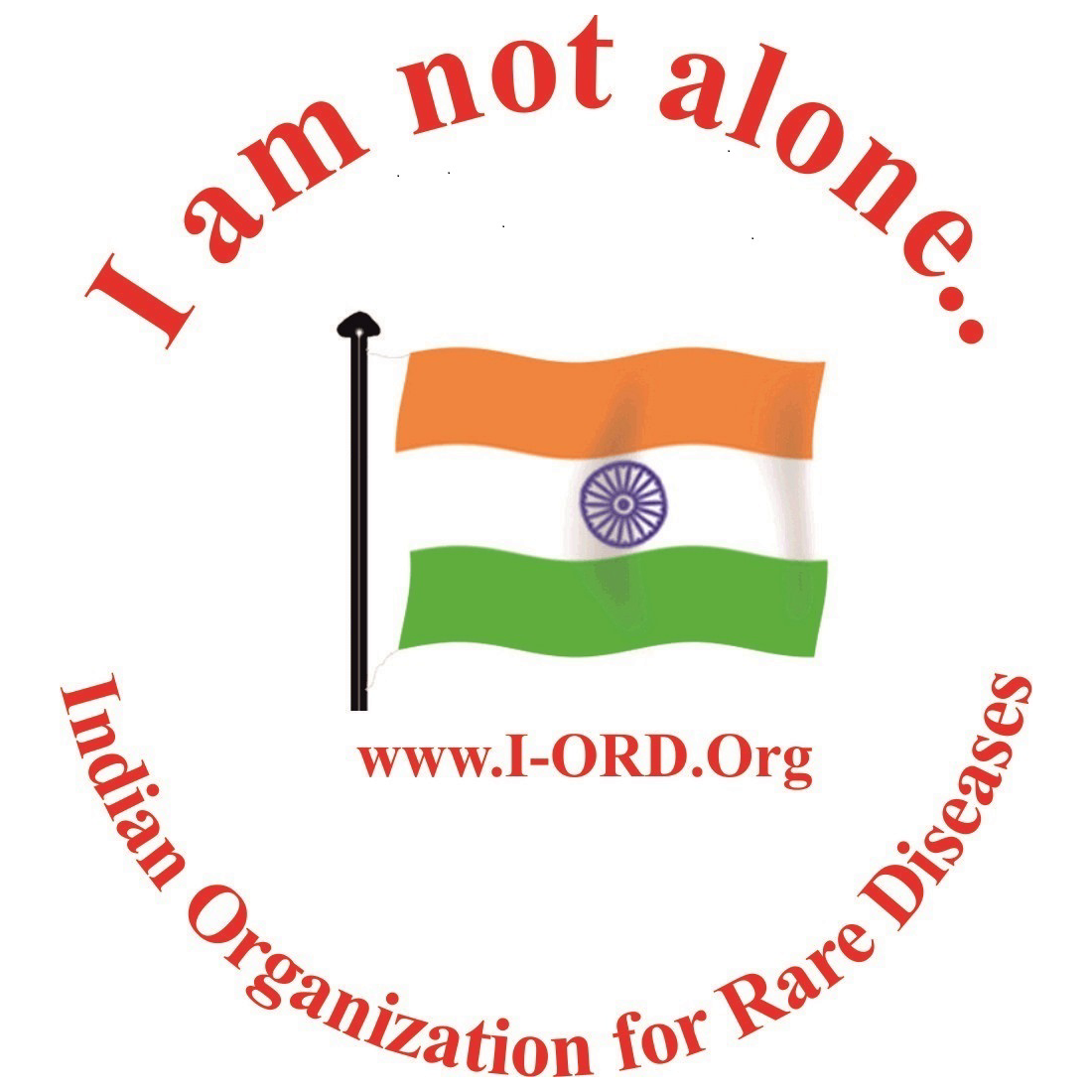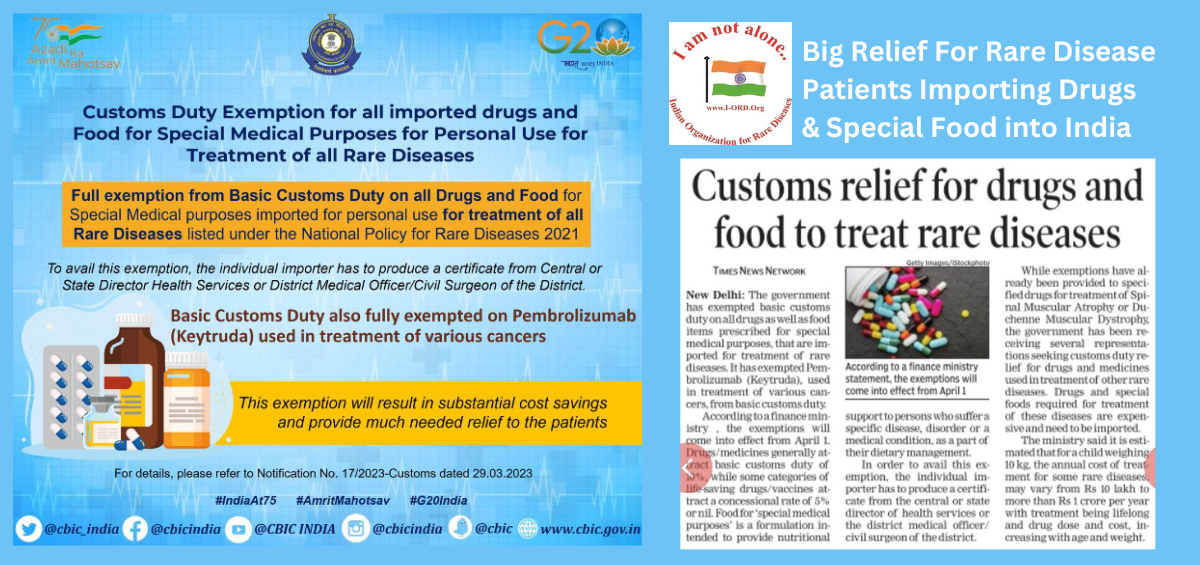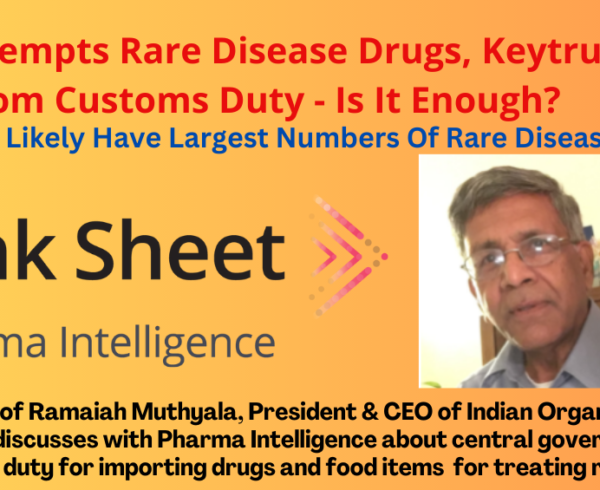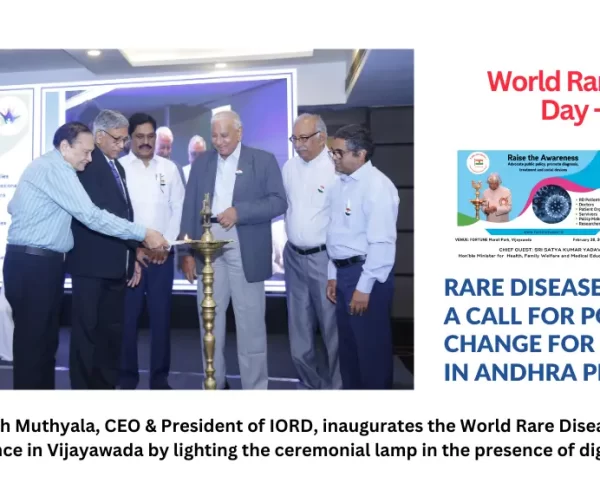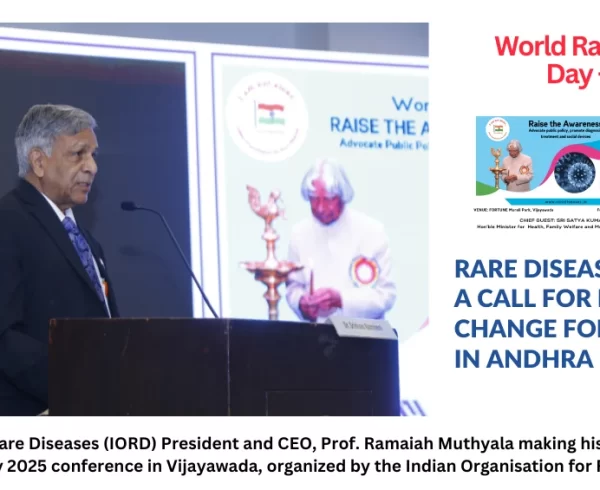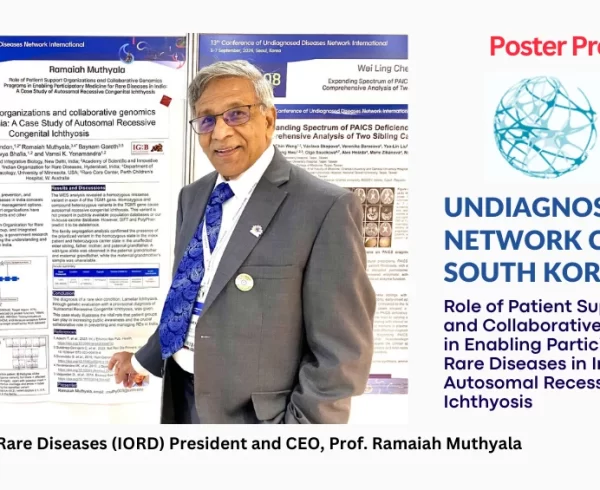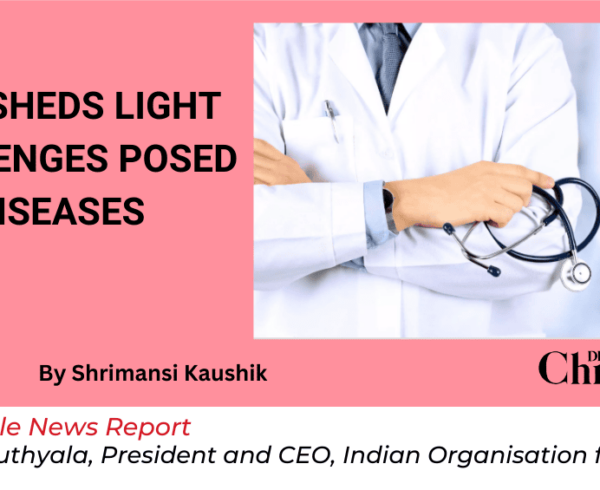Thanks to the concerted efforts of national advocacy Indian Organization for Rare Diseases (IORD) towards the needs of rare disease patients and the community at large, the union finance ministry has now waived off basic customs duty on drugs and food items prescribed for special medical purposes that are imported for the treatment of rare diseases.
Normally, drugs attract a basic customs duty of 10%, while some life-saving drugs and vaccines attract a concessional rate of 5% or are exempted entirely.
The Central Board of Indirect Taxes & Customs, Finance Ministry through its Notification No. 17/2023-Customs, has now provided relief to patients suffering from a range of rare diseases to import drugs and “special medical purpose” food listed under the National Policy for Rare Diseases, 2021. These formulations are intended to provide nutritional support to people suffering from a specific disease, disorder, or medical condition as part of their dietary management. Here is the copy of the Gazette Publication released on 29 March, 2023.
Besides the anti-cancer drug Pembrolizumab (Keytruda), the Rare Diseases for which patients are now exempted from customs duties for importing drugs and “special medical purpose” food are mentioned in List No 38 of the Notification No. 17/2023-Customs
They include the following:
1. Lysosomal Storage Disorders (LSDs)
2. Adrenoleukodystrophy
3. Severe Combined Immunodeficiency (SCID)
4. Chronic Granulomatous disease
5.Wiskot Aldrich Syndrome
6. Osteopetrosis
7. Fanconi Anemia
8. Laron’s Syndrome
9. Tyrosinemia
10. Glycogen storage disorders (GSD) I, III and IV due to
poor metabolic control, multiple liver adenomas, or high
risk for Hepatocellular carcinoma, or condition of substantial cirrhosis or liver dysfunction, or progressive liver failure
11. Maple Syrup Urine Disease (MSUD)
12. Urea cycle disorders
13. Organic acidemias
14. Autosomal recessive Polycystic Kidney Disease
15. Autosomal dominant Polycystic Kidney Disease
16.Phenylketonuria (PKU)
17. Non-PKU hyperphenylalaninemia conditions
18. Homocystinuria
19. Urea Cycle Enzyme defects
20.Glutaric Aciduria type 1 and 2
21. Methyl Malonic Acidemia
22.Propionic Acidemia
23.Isovaleric Acidemia
24. Leucine-sensitive hypoglycemia
25. Galactosemia
26.Glucose galactose malabsorbtion
27. Severe Food protein allergy
28. GH deficiency
29. Prader-Willi Syndrome
30. Turner syndrome
31. Noonan syndrome
32. Acidemias, mitochondrial disorders
33. Acute Intermittent Porphyria
34. Wilson’s Disease
35. Congenital Adrenal Hyperplasia
36. Neonatal onset Multisysteminflammatory Disease (NoMID)
37. Gaucher Disease Type I and III
38. Hurler Syndrome [Mucopolysaccharisosis (MPS) Type I]
39. Hunter syndrome (MPS II)
40. Pompe Disease
41. Fabry Disease
42. MPS IVA
43. MPS VI
44. Cystic Fibrosis
45. Duchenne Muscular Dystrophy
46. Spinal Muscular Atrophy
47. Wolman Disease
48. Hypophosphatasia
49.Neuronal ceroid lipofuschinosis
50. Hypophosphatemic Rickets
51. Atypical Hemolytic Uremic Syndrome
It may be recalled that in the past, import exceptions were available for drugs meant for use for treatment of Spinal Muscular Atrophy or Duchenne Muscular Dystrophy.
How to Apply:
To be eligible for this exemption, the individual importer must provide a certificate issued by the Director of Health Services at the Central or State level, or by the District Medical Officer/Civil Surgeon of their district. The proforma of the form to be used is mentioned in page 4 & 5 of the Customs Notification issued by the centre.
Role of IORD:
The Indian Organization for Rare Diseases (IORD) has been consistently advocating for mainstreaming “Rare Diseases” and “Orphan Drugs” into the government’s policies and schemes to benefit the community for a long time by making regular representations to the various stakeholders in the government.
In a sample survey conducted by IORD in 2019, it found that 27% of people with a college degree, who live in urban areas with access to the internet including NRIs never heard these terms. Things have changed at least in India, in 2014 after President Abdul Kalam spoke about the awareness of rare diseases.
Two years ago, IORD attended an important stakeholders’ meeting convened by the Union Ministry of Health and Family Welfare, Department of Health & Family Welfare (Drugs Regulation Section) at Nirman Bhawan, New Delhi in October 2020.
The issue in question was the finalization of the draft rules G.S.R. 354(E), dated 05.06.2020 to amend the New Drugs and Clinical Trials Rules, 2019 to incorporate the provisions for compassionate use of new drugs in India that was represented by Prof Ramaiah Muthyala, IORD CEO & President.
